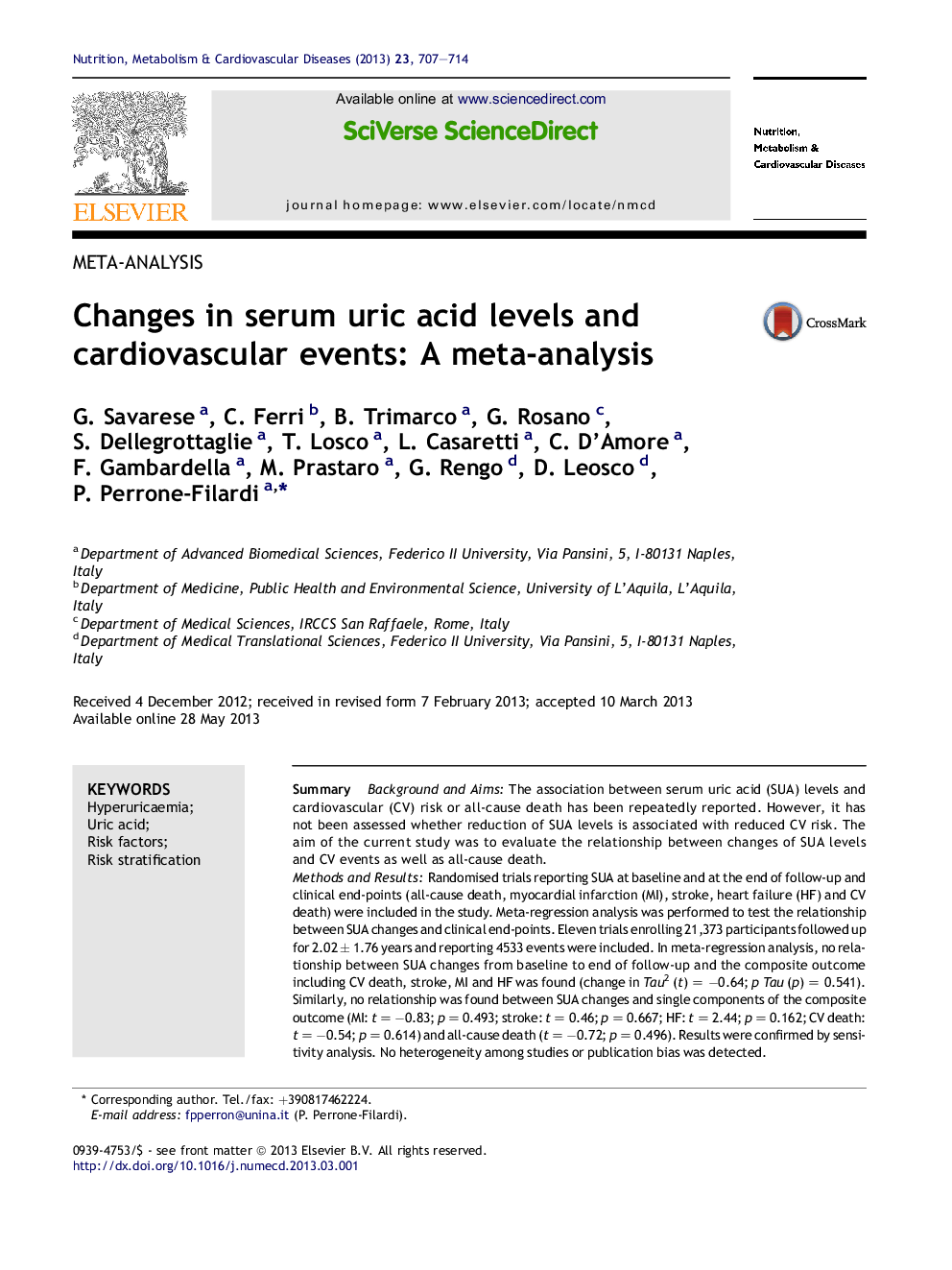| Article ID | Journal | Published Year | Pages | File Type |
|---|---|---|---|---|
| 5996605 | Nutrition, Metabolism and Cardiovascular Diseases | 2013 | 8 Pages |
SummaryBackground and AimsThe association between serum uric acid (SUA) levels and cardiovascular (CV) risk or all-cause death has been repeatedly reported. However, it has not been assessed whether reduction of SUA levels is associated with reduced CV risk. The aim of the current study was to evaluate the relationship between changes of SUA levels and CV events as well as all-cause death.Methods and ResultsRandomised trials reporting SUA at baseline and at the end of follow-up and clinical end-points (all-cause death, myocardial infarction (MI), stroke, heart failure (HF) and CV death) were included in the study. Meta-regression analysis was performed to test the relationship between SUA changes and clinical end-points. Eleven trials enrolling 21,373 participants followed up for 2.02 ± 1.76 years and reporting 4533 events were included. In meta-regression analysis, no relationship between SUA changes from baseline to end of follow-up and the composite outcome including CV death, stroke, MI and HF was found (change in Tau2 (t) = â0.64; p Tau (p) = 0.541). Similarly, no relationship was found between SUA changes and single components of the composite outcome (MI: t = â0.83; p = 0.493; stroke: t = 0.46; p = 0.667; HF: t = 2.44; p = 0.162; CV death: t = â0.54; p = 0.614) and all-cause death (t = â0.72; p = 0.496). Results were confirmed by sensitivity analysis. No heterogeneity among studies or publication bias was detected.ConclusionsChanges in SUA levels observed during pharmacologic treatments do not predict the risk of all-cause death or CV events. As SUA levels are associated with increased CV risk, additional studies with direct xanthine-oxidase inhibitors are requested.
